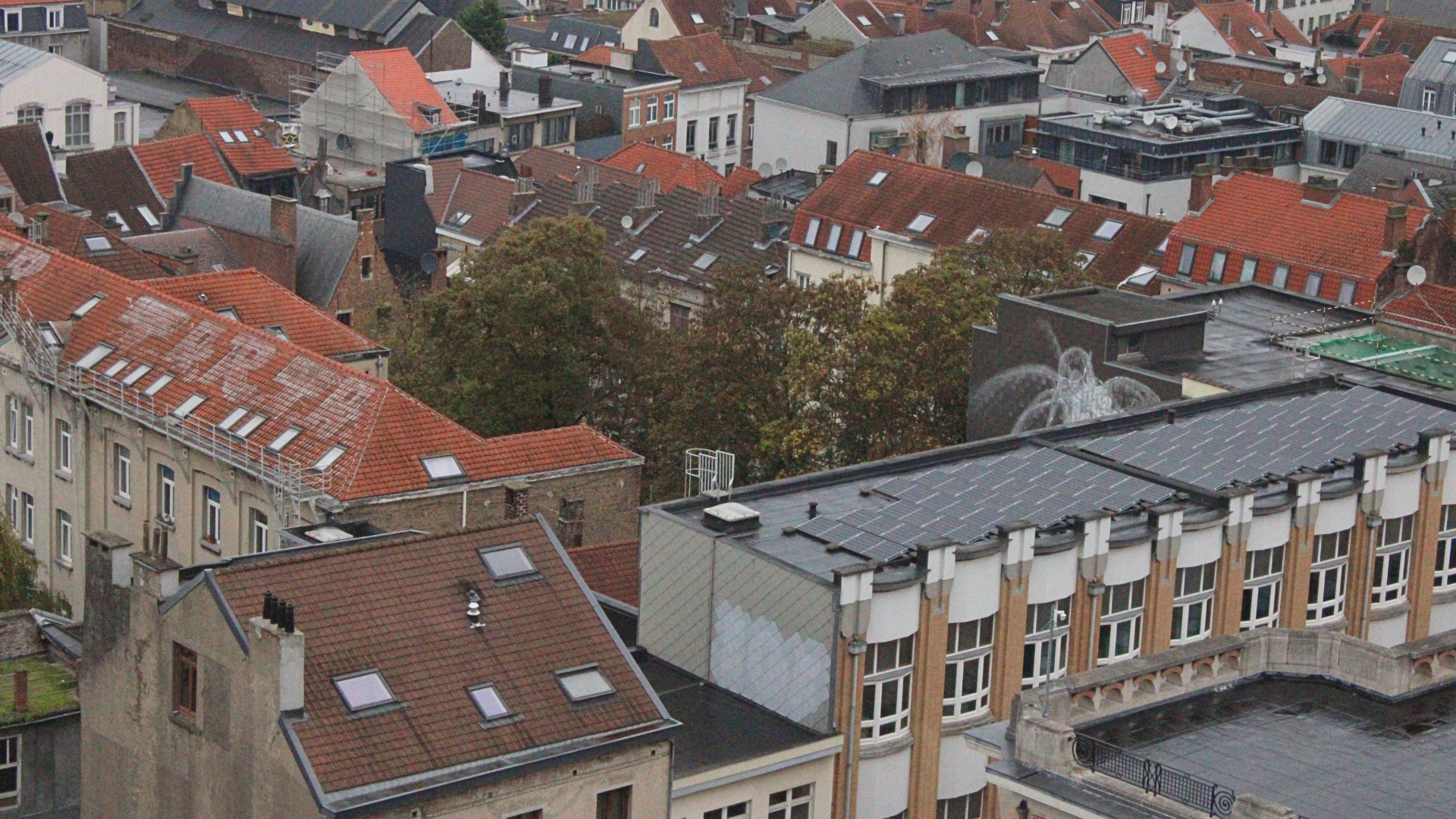Unless the region's rules and regulations on housing are simplified, Brussels' real estate industry warns that they will exacerbate the rising cost of housing and threaten affordability in the capital.
Housing in Brussels has become increasingly unaffordable in recent years. Rental contracts stood at an average of €1,249 per month in 2023 – almost €100/month more than in 2022. Meanwhile, a two-bedroom new-build apartment of 95 m2 recently reached a record-breaking median price of almost €397,000.
"The affordability of real estate for the average citizen is under a great deal of pressure," Brussels President of the Professional Association of the Real Estate Sector (UPSI-BVS), Dr Rikkert Leeman, told The Brussels Times. "This is especially the case in Brussels, where there is a shortage of compact, affordable housing units."
The association warned that the situation is expected to deteriorate.
Problematic planning regulations
Pressures are mounting on the real estate actors supplying new properties. "Post-pandemic inflation resulted in labour becoming more expensive. Then construction costs started rising exponentially. Finally, financing costs and interest fees increased significantly in a short time."
Aside from these more recent problems, the construction and real estate sectors have long faced a more systematic barrier. "The permit delivery system is particularly complex and slow in Brussels, and we are not seeing any improvements in this regard," said Leeman.
The association therefore welcomed the regional government's decision to update its urban planning regulations (RRU), which date back to 2007. However, both urban planning administrations and the real estate sector are already applying a more contemporary vision to the development of new projects, Nils Quintelier, spokesperson for outgoing State Secretary for Urban Development, Ans Persoons (Vooruit), told The Brussels Times.
The previous government worked on the revision with the so-called 'Good Living' RRU, developed by former Secretary of State for Urban Development Pascal Smet (Vooruit). Among the targets were well-distributed green spaces, a clear framework for construction projects and focusing on renovation. "But the initiative completely missed the mark in terms of affordability," Leeman said.

View over houses and flats in Brussels from the Palais de Justice. Credit: The Brussels Times / Lauren Walker
He argued that, instead of simplifying the process, it has been made more complex. "Now, the region's administration [overseeing the permits] risks falling further behind." The BVS warned that this could lead to a complete standstill of new projects. In the first half of 2024, just 1,179 new housing units were approved in Brussels, 40% fewer than in 2023.
Persoons' cabinet refuted these claims. "Good Living provides the right solution to the current contradiction between an outdated regulation and the necessary assessment of projects based on insights and criteria," said Quintelier.
Expensive ideals?
The new regulations, which aim to redefine living in Brussels, also include additional criteria which new housing units must meet. Examples include increasing ceiling heights to 2.70 metres, a focus on green courtyard areas, flats with windows both at the front and the back and a compulsory provision of bicycle parking on the ground floor instead of underground.
"The objectives are defensible, but few people care whether their ceiling is 2.50 or 2.70 metres high – it doesn't impact their housing quality," Leeman said. The association estimates that, due to all the supplementary obligations, the prices of newly-built homes in Brussels will rise by 5% to 10%.
People are limited in what they can afford when renting or buying a property. "If the costs of new-build houses or flats increase but people's budget remains stable, the bill for developers and investors no longer adds up."

Credit: Belga
Although this particularly deters small-scale investors, it is also impacting major construction and real estate companies. "Many of the big real estate actors are performing badly at the moment; their annual results are very poor." The sector is also being hit by bankruptcies.
However, Quintelier stressed that the 'cost price' of a house, from the buyer or tenant's point of view, depends on many more factors than the construction cost. "New builds are sold in the Brussels Region for prices ranging from €2,800/m2 to €7,000/m2, depending on where they are located," he said.
"If Good Living only has a limited impact on the construction cost of new builds, it is other factors that determine the final sale price, and any share of construction cost in it will be very limited."
In some cases, the rules included in Good Living confirmed trends seen in the deviations from the current RRU. "For example, it states that the ceiling height in new builds should be at least 2.50 metres. But an analysis by Urban.brussels of over 130 recently licensed projects shows that the average ceiling height is already around 2.70 metres. Good Living confirms this trend by raising the regulatory height to at least 2.70 metres."
'Dangerous cocktail'
Leeman warned that these factors threaten to increase pressure on the real estate market, driving up rental costs and house prices in Brussels.
"We are heading towards a serious housing crisis for several reasons," said Leeman. Brussels' population is growing, while the average size of households is becoming smaller due to an increasing number of divorces and an ageing population. This means there is a need for more housing units, not necessarily larger ones.
"This, combined with a drop in investment in real estate, results in a dangerous cocktail of increasing demand and decreasing supply. And this pushes up prices," said Leeman.
Related News
- Cost of housing: Which Brussels communes are most affected by rising interest rates?
- Changes to Brussels rental market: How will tenants be affected?
The association has therefore called for urgent adjustments and simplifications to the planned Good Living scheme to reduce the number of regulations and increase the housing supply.
Quintelier stressed that Good Living only defines the urban development quality rules. "It is the Brussels Zoning Code BWRO that defines the procedural rules and deadlines. The two must not be conflated." He added that the BWRO will also have to be reformed in the next legislature.
The Council of State previously raised some serious legal issues regarding Good Living. "A new public enquiry will be held, as the Council of State found some irregularities in the organisation of the previous public enquiry by the municipalities," Quintelier said.

